Can liturgical changes affect validity? Cardinal Vaughan says yes
Cardinal Vaughan stated that systematic liturgical changes demonstrate the intentions of those responsible for them, and can render the rite of doubtful validity.
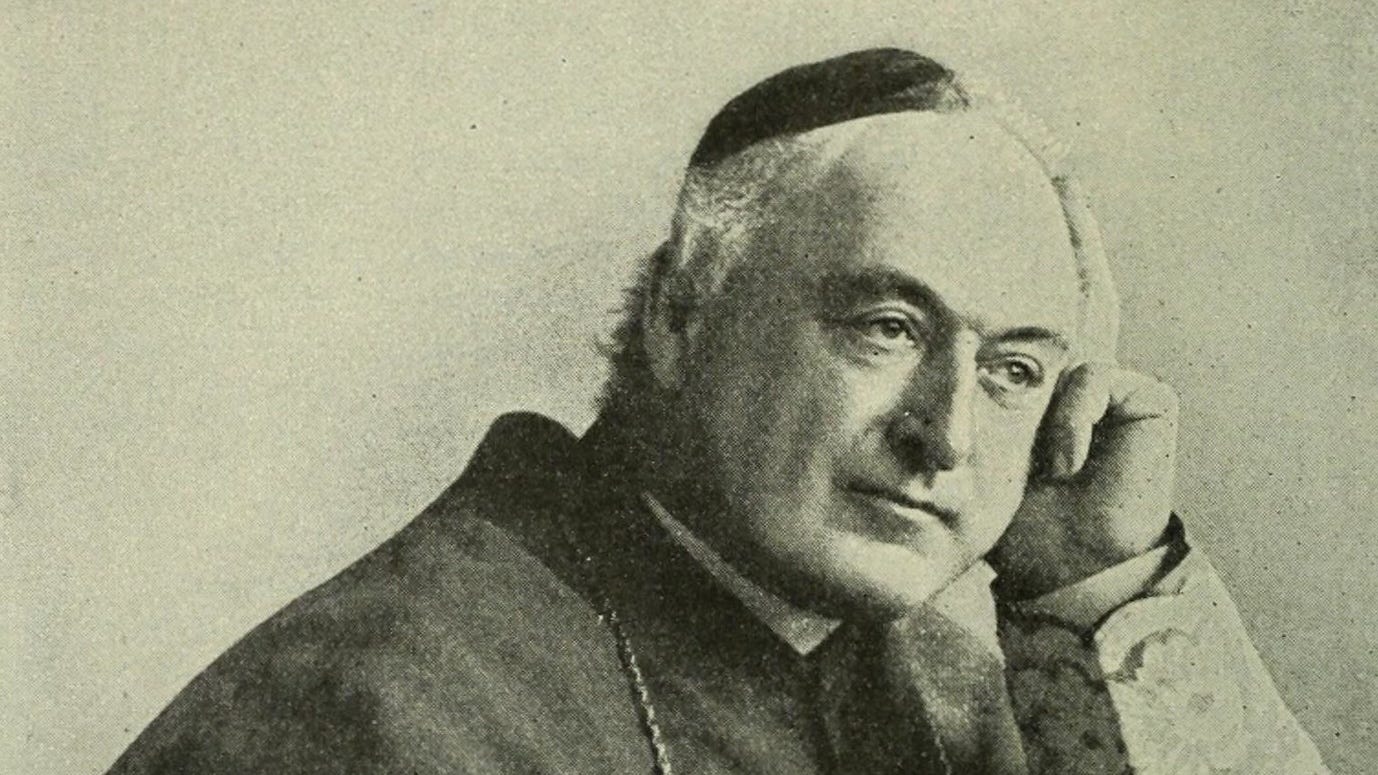
The cardinal states that systematic liturgical changes demonstrate the intentions of those responsible for them, and can render the rite of doubtful validity.
Editors’ Notes
As part of our ongoing efforts to highlight the difficult situation created by the new sacramental rites, we are publishing Cardinal Herbert Vaughan’s 1894 letter to the tablet.
In this letter, he explains:
The impossibility of insisting on sacramental validity when one’s co-religionists overwhelmingly do not care about the matter
The effect of eliminating the concept of sacrifice from liturgical rites
What it means for an ordaining/consecrating bishop to use such denatured rites.
All this has obvious application to our current situation—even if it were conceded that not every reference to sacrifice has been eliminated in the Novus Ordo rites.
The principles set out seem to apply, even if the architects of the Vatican II revolution may have left a somewhat greater degree of plausible deniability. It seems completely absurd to think that their leaving a few disjointed allusions to sacrifice can prevent us from forming moral certainty as to the intentions of the reformers—both in terms of the meaning and denoation of the rite itself, and in their subsequent use of it.
This is why, to preserve sacramental integrity, safeguard the common good, and secure peace of conscience, it is essential that all traditionalist groups systematically implement the conditional ordination/consecration of clerics whose orders depend on the validity of the Novus Ordo rites.
Cardinal Vaughan’s Letter to Mr. I.D. Howel
The Tablet, October 13, 1894
n. 84, n. 2840., p 581.
The Catholic understanding of Holy Orders
Sir ,
I am at a loss to understand how my words in the Address on the Reunion of Christendom: “Would that our Anglican friends could prove to us, would that we could recognise, their Orders!” can have been interpreted to you from an Anglican pulpit as an admission on my part “that Anglican Orders and Sacraments are real.” But I have received letters of exactly the same import as your own from other parts of England.
Readily, therefore, as I recognise and warmly as I admire much that is generous, noble and true in Anglican aspirations and endeavours, and willingly as I admit the good faith which is conspicuous in so many, I must not leave uncorrected a misapprehension on so grave a matter as that of Anglican Orders.
But let us be quite clear as to what we mean by Orders. Catholics understand Ordination to be the bestowal upon men:
First, of a power to change bread and wine, so that in their place our Lord and Saviour Jesus Christ becomes truly and substantially present on the altar in His Divine and Human natures, and to offer Him up in true Eucharistic sacrifice to the eternal Father
Second, of a power to forgive the sins of men with a divine efficacy.
The doctrine of the Anglican Church
We cannot allow that Anglican Orders possess or confer these supernatural powers, which are of the Priesthood of Christ. And, first, am I wrong in believing that the existence of any such powers in their ministers is as vehemently denied by a large majority of the members of the Established Church as by ourselves? If so, what of the certainty professed by those numerous and devout members of the same Communion who maintain that these powers are bestowed and exercised within their Church? And where is the Unity of the Anglican Church on a doctrinal matter of such vital importance?
I had the assurance some time ago of a friend that, when he was ordained as an Anglican, the Bishop prefaced the ordination by warning him thus:
“Now mind this, Sir, I am not going to ordain you to be a sacrificing priest.”
The warning may have been unusual, but were the intention and the theory underlying it uncommon? And are there no Anglican prelates now who would declare emphatically that in ordaining they do not intend to make sacrificing priests?
Historical doubts
Next, on what ground do Anglicans claim for their Orders the supernatural powers referred to? On this: that there has been no break amongst them, from pre-Reformation times to the present, in the transmission of valid orders.
Now, apart from any desire to discuss the Barlow controversy, I must remark that the absence of any record of Barlow’s consecration, taken with the circumstances of his subsequent history, must necessarily make the transmission of Orders to Archbishop Parker historically doubtful.
Intentions behind liturgical reform
But more than this, the new forms of Ordination and Consecration, drawn up by Cranmer, at a time when he and his friends emphatically repudiated the doctrines and practices of the ancient Church of England, carefully exclude everything of the ancient Catholic rites indicative of the sacrificial character.
This was perfectly consistent with the destruction of the altars and the substitution of a table, with a rejection of the Liturgy of the Sacrifice of the Mass, and the substitution for it of the present Communion Service, which excludes all idea of an actual and substantial Real Presence and of a sacrificial act.
No one who compares the ancient rites of Ordination and the Liturgy of the Sacrifice of the Mass with the rites substituted by Cranmer can fail to see that every idea of a sacerdotal or sacrificing character was carefully eliminated. This has been shown clearly enough in Dr. Gasquet's work on The Book of Common Prayer, and in Canon Estcourt's on Anglican Ordinations.
Systematic liturgical changes like these are the best means extant of ascertaining the intention of the English Reformers. The acts and words of those who drew up the new form of Ordination cannot be doubtful. They intended positively to exclude the ancient idea of a sacrificing Priesthood as they had already banished that of the Eucharistic Sacrifice. Ordinations held by men repudiating the Catholic doctrine of the Priesthood and using rites designed to emphasise this repudiation must ever be subject to, at least, the most overwhelming doubt.
The effect of setting aside the Catholic doctrine
Then again, the Anglican Church, even in its most advanced theologians, seems never, until quite recent times, to have shown any desire to return to the doctrine of the Eucharistic sacrifice or to the idea of the Christian Priesthood as held by the Catholic Church.
You may regret this and point to a change in thought; but you can never get over the historical and doctrinal fact that for 300 years the Anglican Church has cast aside the essential character of the Catholic rite of Ordination, and has used instead a form that was deliberately intended to exclude the idea of a sacrificing Priesthood.
And with the lapse of validity in Anglican Orders is involved, of course, the loss to the Anglican Church of apostolical succession.
The Catholic Church's Stance on Validity and Unity
I conclude, therefore, by submitting that no prudent man can possibly affirm the validity of Anglican Orders or trust his soul to their sacramental efficacy. And I believe that, under all the circumstances, the Holy See could never accept, as it never has accepted, the Ordinations of Anglican clergymen.
But, as I pointed out in my address at Preston, the question of Orders is after all only a side issue. Even were it proved that the Anglicans, like the Donatists, have valid Orders, and even were they acknowledged by the Holy See, in the words of St. Augustine it would avail them nothing “outside the unity of the Church.”
Believe me, Sir, yours faithfully,
Herbert Cardinal Vaughan,
Archbishop’s House, Westminster, October 2, 1894.
HELP KEEP THE WM REVIEW ONLINE!
As we expand The WM Review we would like to keep providing free articles for everyone.
Our work takes a lot of time and effort to produce. If you have benefitted from it please do consider supporting us financially.
A subscription from you helps ensure that we can keep writing and sharing free material for all. Plus, you will get access to our exclusive members-only material.
(We make our members-only material freely available to clergy, priests and seminarians upon request. Please subscribe and reply to the email if this applies to you.)
Subscribe now to make sure you always receive our material. Thank you!
Read Next
Follow on Twitter, YouTube and Telegram:



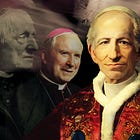
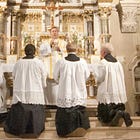
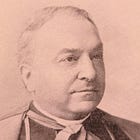
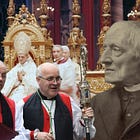
The unfortunate thing is that I am now 100% certain the pastor of my local NO church, as well as the diocesan ordinary, are invalid. Both do not (or did not) believe the NO is a sacrifice, and both were formed that way.